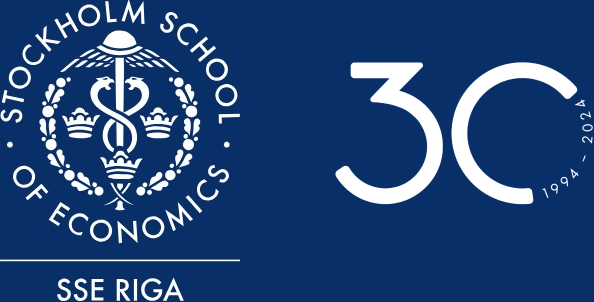Open Workshop by Dr. Aleksandra Klein: Drivers of Team Creativity — A Management Accounting Perspective
Friday, November 2, 2018, 15:00 – 16:30
SSE Riga, Room 507
The aim of the Open Workshop Series in Business and Management Studies is to promote top-quality academic and applied research in various fields of the social sciences. This is a unique opportunity for sharing knowledge and networking with local and international community members.
Speaker: Dr. Aleksandra Klein, WU Vienna University of Economics and Business, Austria
During the workshop, Aleksandra Klein will present two papers on team creativity that emerged from her dissertation project:
1. Does Using Accounting Data in Performance Evaluations Spoil a Team’s Creative Confidence? The Role of Leadership Behavior
Organizations frequently use teams for creative problem solving. Evaluating the performance of creatives based on accounting data, such as client satisfaction measures, reject rates, revenues, or profits helps team leaders direct their team’s creative efforts towards results that are valuable for the organization. However, the use of such performance evaluations has been charged with undermining the team’s creative atmosphere. Drawing on research on teams and team leadership, we propose that a team leader’s use of accounting data in performance evaluation negatively affects team potency, that is, the team’s trust in its own capabilities, which is itself a driver of team creativity. This negative effect disappears or can even turn positive when the team leader exhibits a transformational team leadership style. We provide evidence for our proposed model using data collected at three levels (372 individual responses, 101 teams, and 52 marketing and advertising agencies).
2. Managing the Trade-Off between Delegation and Task Interdependence in Creative Teams: The Role of Personnel and Cultural Controls
In this study we analyze the interactive effects of delegation of decision rights (task autonomy) and team task interdependence on creative team performance. Creative teams are characterized by a high requirement for both autonomy and task interdependence, suggesting that ideally creative teamwork should be designed in a way that both are maximized. However, we expect that giving team members higher autonomy will in fact undermine the positive effect of more task interdependence on team creativity and vice versa. Most importantly, while the trade-off between autonomy and team task interdependence is inherent in the nature of creative work, we argue that some creative teams are better able to deal with this trade-off than others, depending on the presence of selection, training and cultural control as mechanisms for supporting successful team self-control. Such clan control enables teams to efficiently self-manage and self-regulate team activities in order to reconcile high task interdependence and high task autonomy (team self-control).
Dr. Aleksandra Klein works at the WU’s Institute for Strategy and Management Accounting, Department of Strategy and Innovation (since 2013), where she completed her doctoral degree in Economic and Social Sciences in 2017. Ever since she joined academia, she has focused on complex and divisive phenomena in cross-disciplinary settings. The leitmotiv in Aleksandra Klein’s research is the role of management accounting and control systems in creative and innovative environments. In her dissertation project, she has looked into the effects of various management control mechanisms and leadership style (among other factors) on team creative performance in advertising agencies. Together with her co-authors from reputable European universities, Aleksandra is involved in numerous interdisciplinary research projects, where her expertise in management and accounting is combined with other management and related research fields, e.g., entrepreneurship, international business, family firms, and gender and diversity. Aleksandra’s work has been presented at different forums organized by the major academic and professional associations (e.g., Academy of Management, American Accounting Association, Art Directors Club of Europe, etc.). Having received several research grants and fellowships, she has been also recognized for her teaching undertakings, including the prestigious Austrian State Award for Excellent Teaching “Ars Docenci 2016.” Before starting her academic career, Aleksandra Klein has gained valuable practical experience in management consulting, banking and finance, as well as social business and entrepreneurship, which she is keen to apply in her research and teaching endeavors.
Discussion moderated by Dr. Arnis Sauka. Attendance is free of charge.
Please sign up for the seminar, writing to arnis.sauka@sseriga.edu by October 30, 2018.
The aim of the SSE Riga Open Workshop Series is to:
- Foster cooperation between business and management researchers, practitioners and policy makers, as well as
- to promote academic and applied research in various fields of the social sciences, focusing on but not limited to entrepreneurship, marketing, management, public administration and strategy.
Organised by the Centre for Sustainable Business at SSE Riga.

